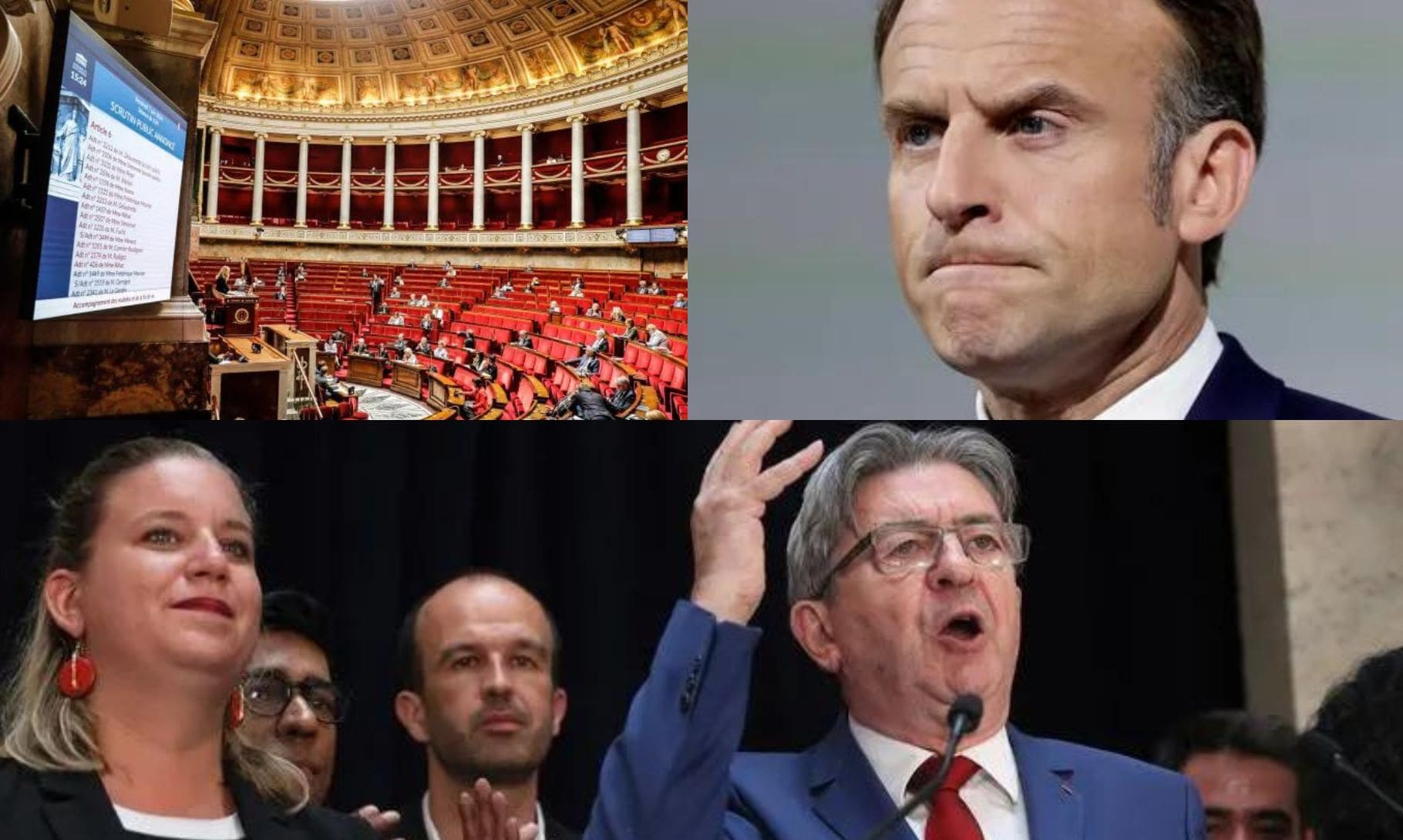French voters have given a leftist coalition the most seats in a crucial legislative election on 7 July, leading to a fragmented parliament and an unprecedented political situation in France. This outcome has blocked the far right from gaining power but has left no single party in control of the National Assembly, the lower house of parliament.
President Emmanuel Macron’s centrist alliance finished second, after both centrist and leftist candidates campaigned against the far right. This resulted in the far-right National Rally party securing the third most seats, although it significantly increased its representation. With no clear candidate for prime minister, Macron will need parliamentary support for his choice, and he has decided to wait before making any decisions, as he is set to attend a NATO summit in Washington. The new legislators will start their work on Monday, with their first session scheduled for July 18.
The election has resulted in three major political groups: the leftist New Popular Front with over 180 seats, Macron’s centrist Together for the Republic with 160 seats, and the far-right National Rally with more than 140 seats. This fractured parliament will require cross-party consensus to agree on government policies and a legislative agenda, a challenging task given the deep political divisions in France over issues such as taxes, immigration, and Middle East policy.
Can Macron Make a Deal?
Macron’s centrist allies will struggle to implement their pro-business policies and passing a budget will be more difficult. Macron may seek a deal with moderate leftist parties, although France has no tradition of such arrangements, making any potential negotiations difficult and possibly resulting in a fragile alliance. Macron has ruled out working with the hard-left France Unbowed party but might reach out to other parties in the New Popular Front, like the Socialists and the Greens. However, these parties might refuse his overtures.
What is Mélenchon’s Role?
The left is also facing internal divisions, particularly after the October 7 attack by Hamas on Israel. Jean-Luc Mélenchon, leader of the hard-left France Unbowed party, has been criticized by moderate leftists for his stance on the conflict. Mélenchon and his coalition have promised to raise the minimum monthly salary, reverse Macron’s pension reform, and freeze food and energy prices, which has caused concern in financial markets. Despite claiming readiness to govern, Mélenchon is not a viable candidate for prime minister due to Macron’s refusal to work with him and the lack of support within his coalition.
Prime Minister Gabriel Attal offered his resignation following the election results, but Macron asked him to stay on temporarily. Attal’s government will handle day-to-day management while Macron waits for the new National Assembly to organize itself before making decisions on a new government. Macron’s term runs until 2027, and despite being weakened by the election results, he will not step down. He retains significant powers over foreign policy, European affairs, defense, and international treaties. The new prime minister, accountable to parliament, will introduce bills but is unlikely to challenge Macron’s control over defense and foreign policy.
France’s recent legislative election has led to a hung parliament, requiring unprecedented negotiations to form a government and appoint a prime minister. Macron’s centrist alliance, the leftist New Popular Front, and the far-right National Rally must navigate deep political divisions to establish a functioning legislative agenda in a complex political landscape.







